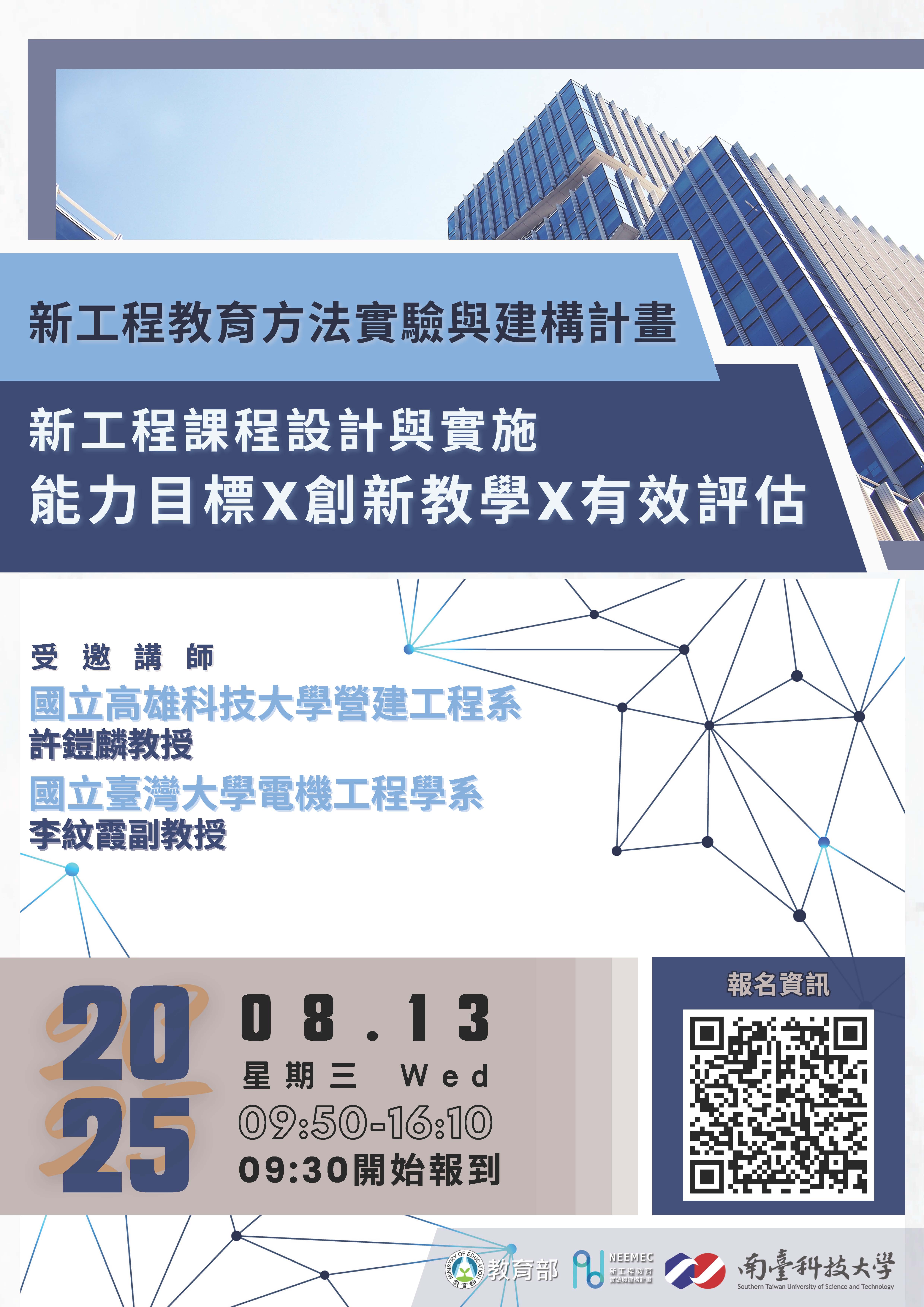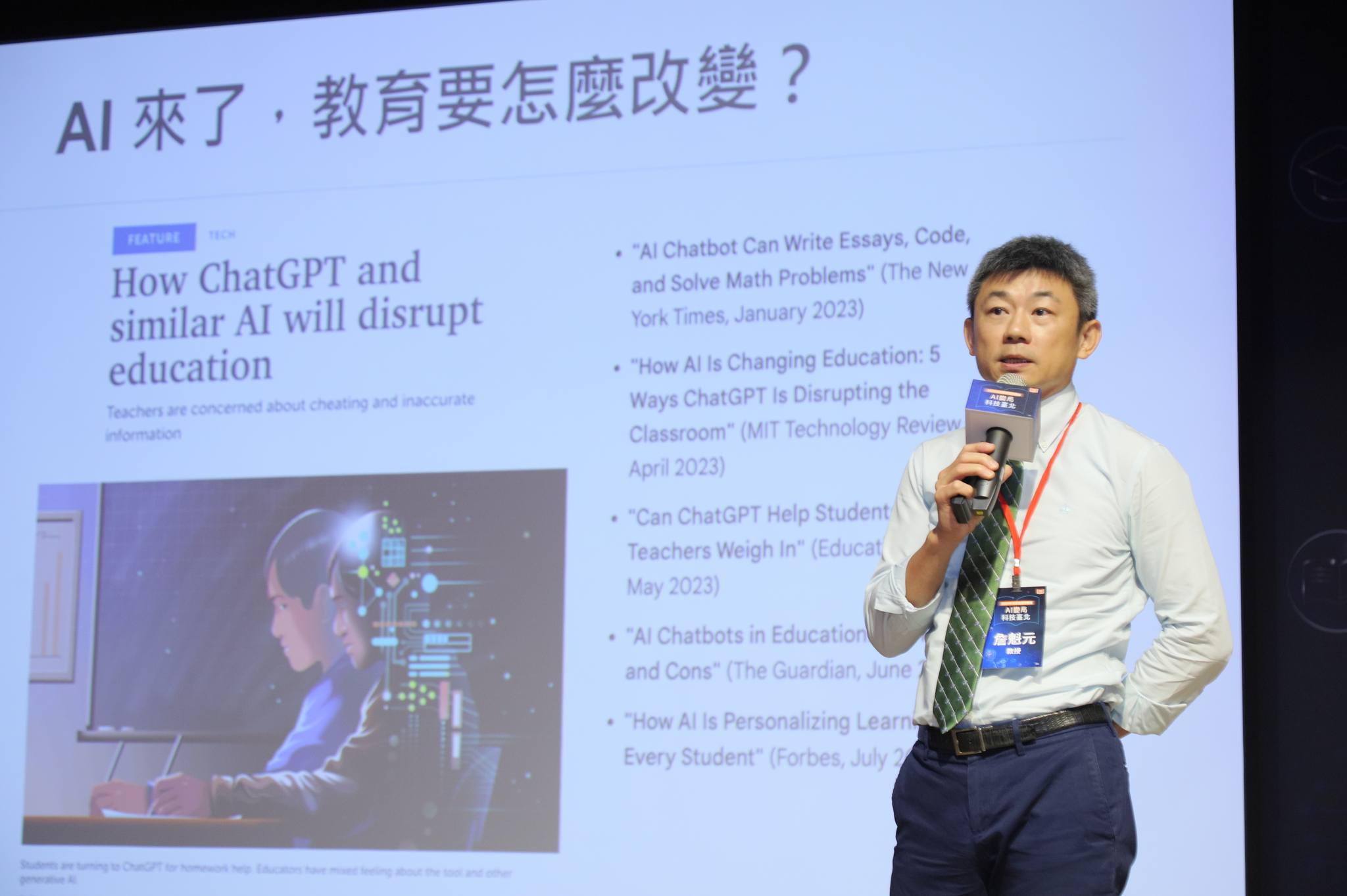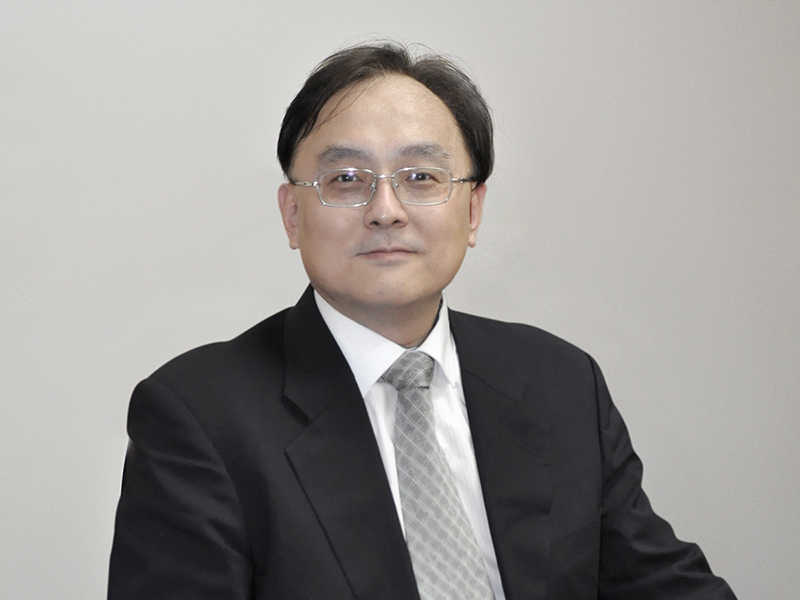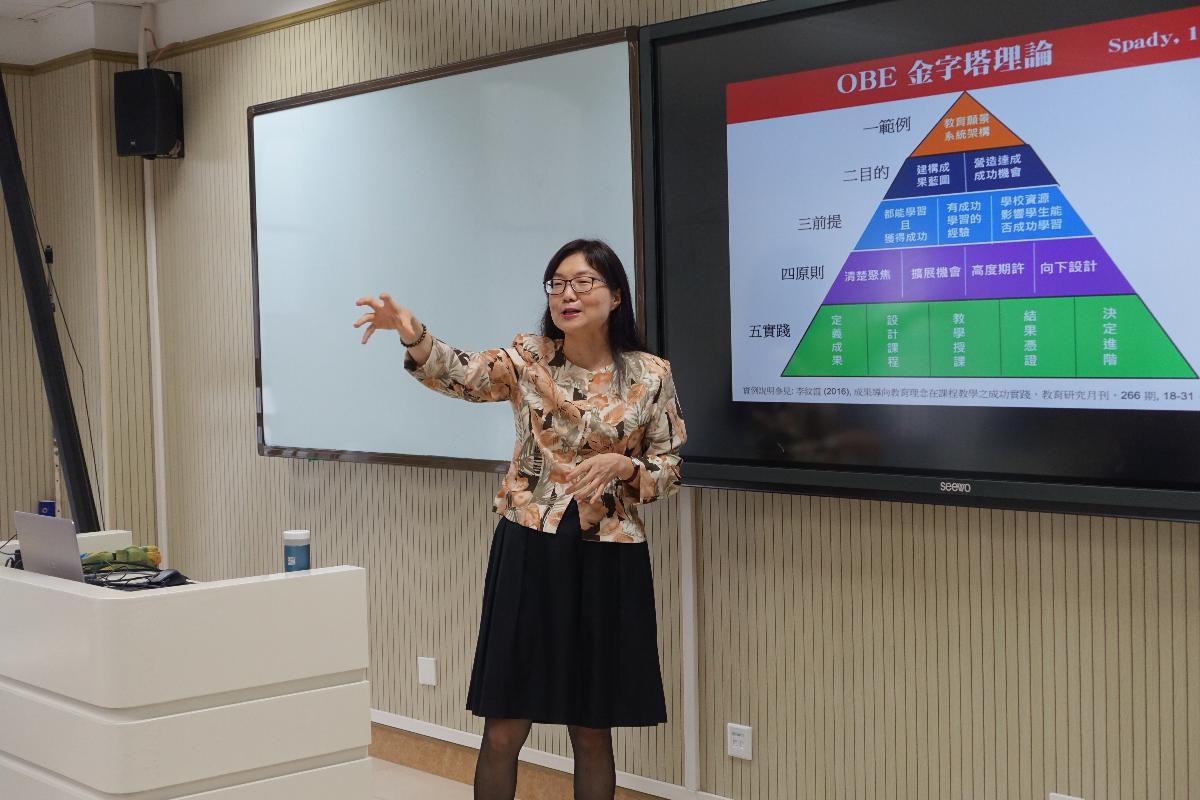|
On August 13, 2025, Southern Taiwan University of Science and Technology (STUST) hosted the New Engineering Project Empowerment Workshop under the theme “New Engineering Curriculum Design and Implementation: Competency Goals × Innovative Teaching × Effective Assessment.” The workshop focused on higher education innovation and strategies for cultivating engineering talent. The opening remarks was delivered by President Nen-Fu Huang, followed by distinguished speakers including Professor Kui-Yuan Zhan, Director of the Ministry of Education’s New Engineering Project; Professor Kai-Lin Hsu from the Department of Construction Engineering at Kaohsiung University of Science and Technology; and Associate Professor Wen-Shia Li from the Department of Electrical Engineering at National Taiwan University.

【A poster for STUST's New Engineering Project Empowerment Workshop, August 13th】
Since joining the Ministry of Education’s New Engineering Project, the Department of Electronics and Department of Chemical Engineering at STUST participated in Phase I in 2019. Phase II, launched in 2023, expanded to include the Department of Mechanical Engineering and the Department of Electrical Engineering. Over the past six years, the university has focused on the learning characteristics of Generation-Z students, adopting a flipped classroom model, integrating cross-departmental curriculum design with collaborative teaching, and gradually developing a competency-based, innovative teaching model. In this workshop, President Nen-Fu Huang shared the outcomes of the 2023–2024 academic year, including: (1) Thematic course cluster development and curriculum innovation; (2) Integration of corporate resources to strengthen students’ practical skills; (3) Student achievements in competitions; and (4) Faculty research and teaching development accomplishments.

【Professor Kui-Yuan Zhan, Director of the Ministry of Education's New Engineering Project, attended the STUST Empowerment Workshop.】
In curriculum design, the Department of Mechanical Engineering has adopted a Work Integrated Education (WIE) approach to align with the industrial needs of the Greater Tainan region, fostering a model that cultivates engineering talent with purpose and initiative. Using cross-disciplinary thematic course clusters as a foundation, the university offered 11 clusters and 40 innovative courses during the program, benefiting a total of 3,710 students. A total of 39 faculty members collaborated across disciplines, producing 16 thematic teaching materials and 42 course-specific teaching materials—highlighting STUST’s strong capabilities in integrating teaching with R&D innovation.

【Professor Kai-Lin Hsu of the Department of Construction Engineering at Kaohsiung University of Science and Technology participated in an engineering education empowerment event.】
In terms of industrial connections, STUST has formed strategic partnerships with 32 companies, including leading manufacturers such as United Orthopedics, Kangyang Wheelchairs, TradeLink Technology, and Guangtai Metals. The program invited 39 experts as course instructors and successfully placed 83 students in internships, effectively bridging theory and practice. Student competition performance was equally impressive, with 91 professional teams participating in events such as STUST’s signature “Wind Power Cup” and the award-winning Carbon Storage and Fishing Project, which received the Taiwan Sustainability Action Award. The student certification pass rate exceeded 80%, and faculty members published nine academic papers, demonstrating a well-rounded balance of research and teaching excellence.

【Associate Professor Wen-Shia Li of the Department of Electrical Engineering, NTU, shared her perspectives on innovation in engineering education.】
President Nen-Fu Huang stresses that STUST will continue to prioritize innovative teaching, deepen curriculum reform and assessment, and enhance students’ practical skills and international competitiveness by integrating education with industry needs. Moving forward, the university will maintain its commitment to advancing innovation in higher education and contributing to the cultivation of Taiwan’s next generation of engineering talent.
|